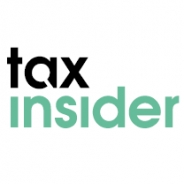
Advice on when to pay a salary or bonus in order to maximise cashflow benefit, from Tax Insider magazine.
Introduction
Payments of remuneration by a company are an allowable expense for corporation tax. They are taxable on the employee or director who receives them, but with a little care the tax payable by the recipient can be delayed.
Payments of remuneration for services rendered during an accounting period of a company, and included in its accounts, will be an allowable deduction for that period, provided they are actually paid within nine months of the company’s year end.
Example
A company makes up its accounts to 31 December each year. For the year ending on 31 December 2012, the directors decide to award themselves a bonus of £50,000. A provision is made in the accounts for this, and provided the bonus is actually paid by the end of September 2013, £50,000 can be deducted from the company’s profits for corporation tax purposes.
As far as the directors are concerned, if the bonus is shared out after 5 April 2013, it will fall into the 2013/14 tax year.
The benefit of this arrangement is that the corporation tax payable on 1 October 2013 in respect of the 2012 accounts is reduced by the £50,000 deduction. If the bonus had not been provided for in the 2012 accounts, the benefit of the tax deduction would come a year later, when the corporation tax for the 2013 year was payable on 1 October 2014.
Trap for Sole Directors
In the above example, I referred to the “directors” in the plural. If you are the sole director of your company, you will need to be very careful if you decide to use this method of relating a bonus payment back to a year that has ended.
This is because the PAYE rules for directors are different to those applying to ordinary employees. Normally, and employee is deemed to have been paid a sum of money (for the purposes of deciding when PAYE is due) when he is actually paid, but a director is deemed to be paid (and so PAYE must be operated) on the earliest of the following times:
- When the earnings are credited in the company’s records
- In a case where the earnings are determined before the end of the accounting period, they are deemed to be paid at the end of that period
- In a case where the earnings are determined after the end of the accounting period, they are deemed to be paid on the day they are determined
The directors in our example were able to defer PAYE because the £50,000 provided in the company accounts was not allocated to specific directors, and so they were not “paid” for PAYE purposes until the amount to be paid was “determined” and they will have taken care to do this after 5 April 2013.
If you are a sole director, it is still possible to use this method but you should take advice from your accountant or tax adviser, because it is easy to make mistakes and under the new RTI regime for PAYE, these can be costly.
The other point to consider is whether the payment of a dividend might be more tax efficient. Although dividends cannot be deducted in calculating the company’s corporation tax liability, in nearly all cases it is more tax-efficient for family companies to pay dividends because the combined rates of tax in the company and for the individual director/shareholder are lower than those on payments of remuneration, and unlike remuneration, there is no NIC payable.
Tax Tip
If you need to pay a bonus rather than a dividend for the year, make sure it is deductible in the accounting period just ended – but be careful this doesn’t trigger a PAYE liability before the payment is actually made.



Please register or log in to add comments.
There are not comments added